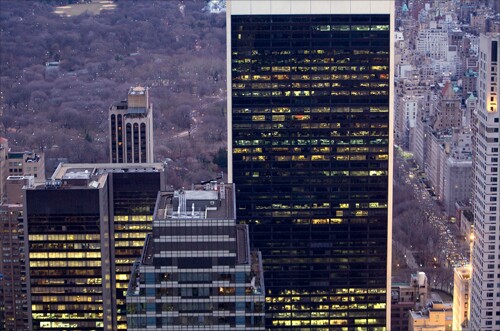

Skyscraper with Views of Central Park

Waldorf Astoria Boca Raton

Extended-Stay Hotel Portfolio

Merchandise Mart, Chicago

Super-Regional Mall in Ohio

Single-Family Rental Portfolio

Oklahoma Megamall
There is some risk, however: S&P said that leases making up 77.4% of the gross leasable area expire before the loan is repaid, and leases accounting for 32.3% of gross leasable area expiring in 2017.






